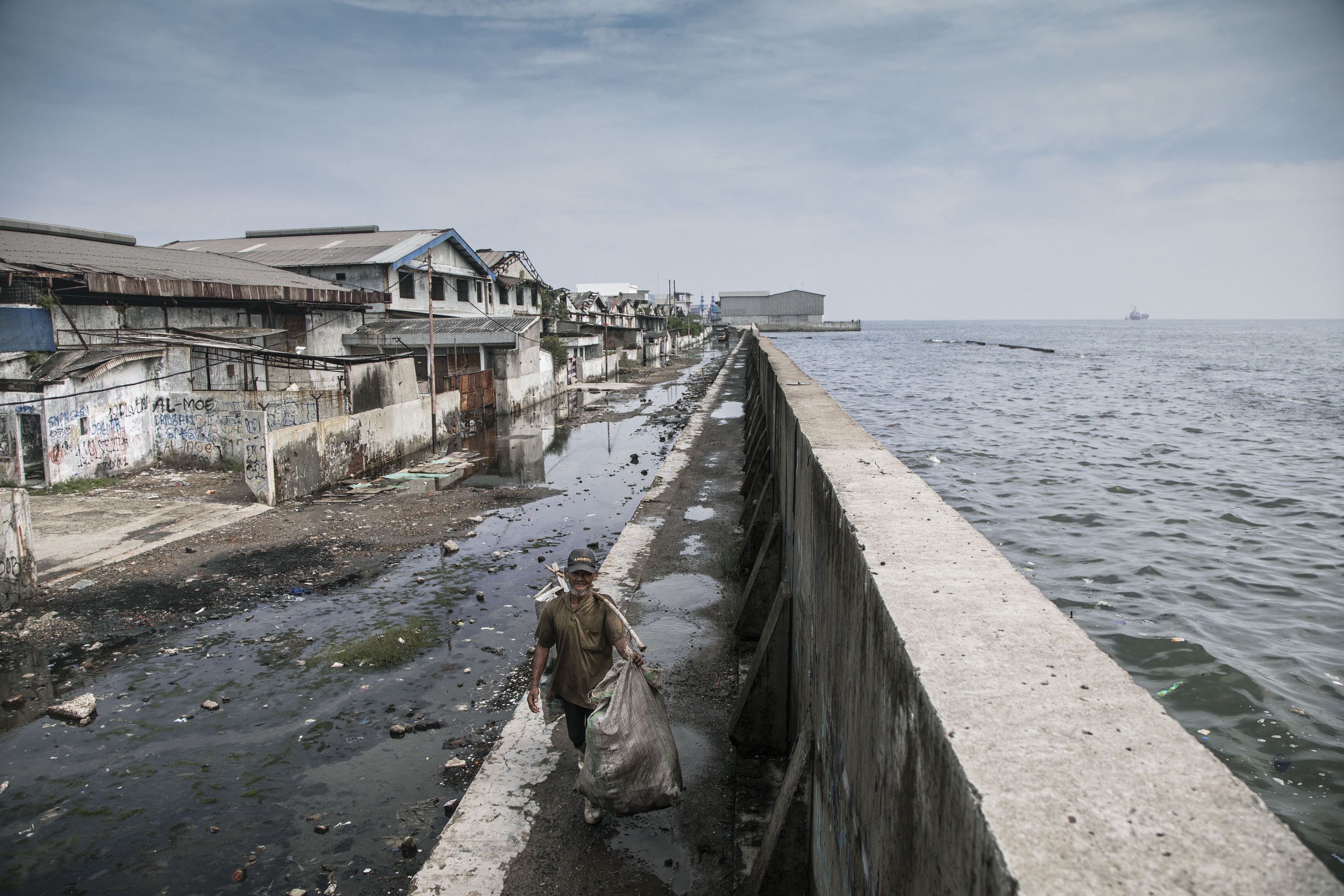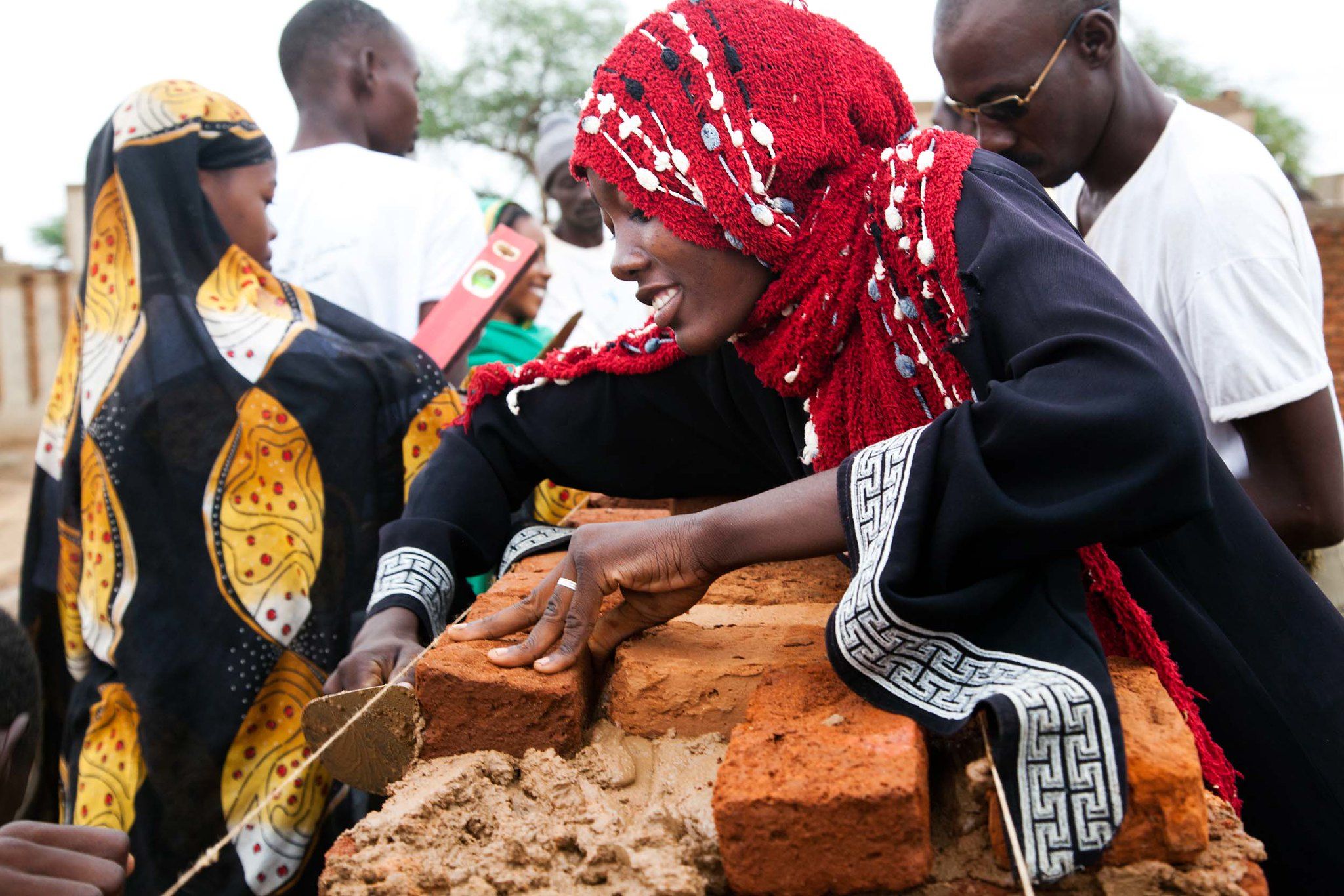This piece was originally published by Thomson Reuters Foundation News.
By Greg Munro, Director of Cities Alliance
Over the last decade the impoverished residents of West Point, the largest seaside slum in Monrovia, Liberia’s capital, have had a front-row seat on the devastating impacts of climate change.
During this time coastal erosion has shifted the shoreline of the community, which sits on a headland jutting into the Atlantic, about 30 meters inland. Rising sea levels have swept away 700 shacks. West Point’s roughly 85,000 residents are examples of the new levels of extreme vulnerability caused when poverty and haphazard urban planning mix with radical climate change.
“My house was far from the sea, but every rainy season we face the same problems. When the sea rises, we cannot sleep here. If you see our room, our things are all high up, on tables” says Michelle, 34, a West Point resident and mother of four. During the rainy season two years ago Michelle’s youngest son nearly drowned when one of the frequent fast-moving tides nearly swept his canoe out to sea. Luckily, a brother rescued the boy before he drifted too far into the ocean.
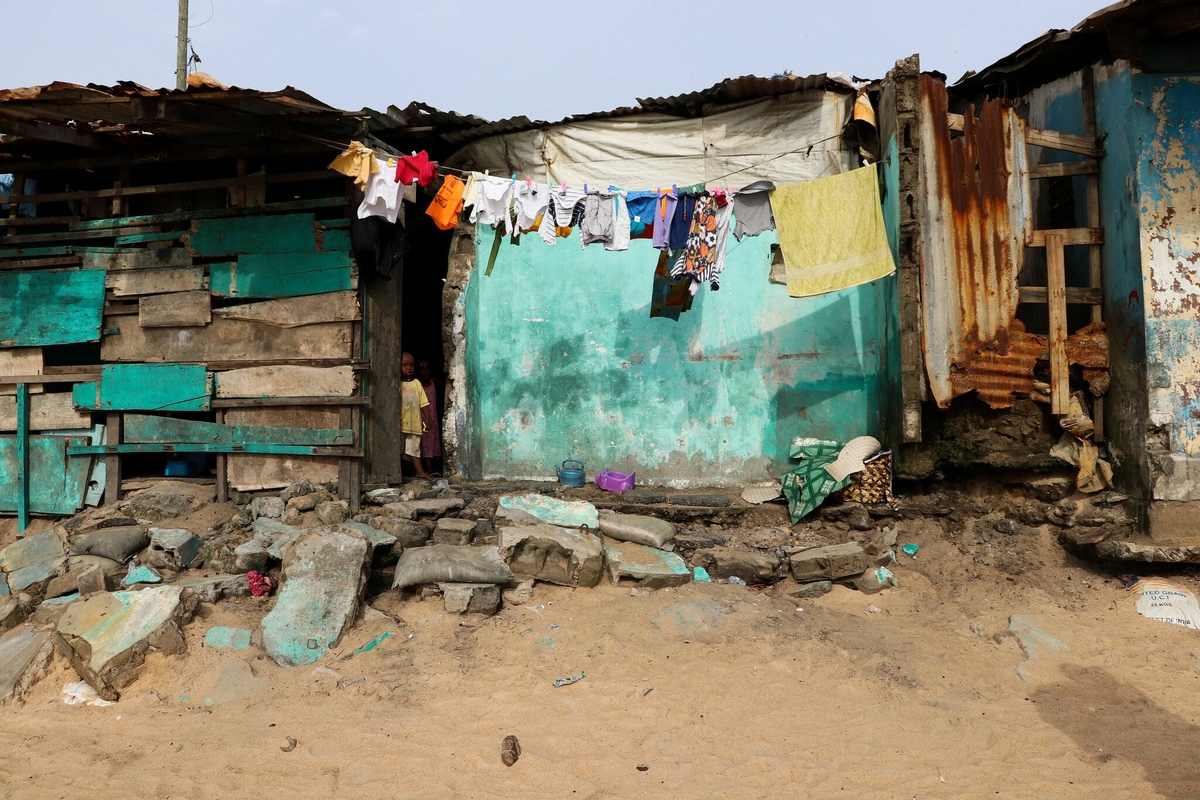
The vulnerability and dislocations occurring in West Point aren’t unique. The steadily increasing impacts of global warming, compounded with those of the pandemic, are exposing urban inequality the hard way.
Like Michelle, the nearly one billion residents of informal settlements across the world are disproportionately and unjustly bearing the brunt of climate change, greatly compounding their vulnerability.
Breaking the cycle of exclusion
Up to now ignoring such issues has been easy. But as the crisis of climate change and urban poverty collide, inaction by wealthy countries becomes harder to justify.
The pandemic has exposed not only society’s inequalities but also the fragile interconnectedness of life on earth. The saying “No one is safe until everyone is”, often used in the context of vaccine acceptance, also applies to climate change and the kind of poverty and mass dislocation it is provoking.
The structural cycle of discrimination and exclusion of the most marginalized communities must be broken if the global community hopes to effectively channel the post-pandemic recovery as an opportunity to build cities that leave no one behind.
Cities Alliance is at the forefront of devising solutions to address urban poverty. We have identified key focus areas where informality intersects with climate change that require urgent and concerted action:
- Gender equality: Pre-existing inequalities and traditional social, economic, and cultural roles increase women’s vulnerability to climate risks. This is, even more, the case among poor women. From Covid-19 to global warming, we must acknowledge that women often bear the brunt of crises as they are more likely to lose their source of income, and are more vulnerable to inadequate service provision and lack of social protection. If we hope to reverse the impact of the pandemic and simultaneously reduce poverty, and create inclusive and resilient cities, making investments that reduce gender inequality should be a priority.
- Urban migration: Currently, over 82 million people worldwide have fled their homes. Many of them because of conflict and violations of human rights. But people are also increasingly displaced by weather-related events that destroy livelihoods and cause permanent damage to natural resources and biodiversity. These ‘climate refugees’ frequently move to urban areas, putting considerable additional pressure on local governments already struggling to deliver services for their own residents. Cities should be empowered to improve migration management by including migrants and displaced persons in urban planning, disaster preparedness and climate adaptation strategies.
- Access to basic services: Climate change and informality are intertwined causes of urban poverty. Owing to the lack of access to public services and decent housing, informal communities often resort to unsustainable coping strategies like cutting trees for fuel, building onto wetlands, and depleting aquifers by drilling boreholes. Energy solutions for informal settlements that limit the overexploitation of resources, improve solid waste management, and provide affordable and reliable renewable energy are urgently needed.
- Resilient infrastructure: While large urban projects can be vectors of economic growth, those that fail to consider their social and environmental impacts may negatively affect people living and working in slums. Climate change requires that slum upgrading projects are designed to help communities adapt and withstand increased hazards and that safeguards are put in place. Well-designed, climate-proof infrastructure that uses nature-based solutions and local sustainable materials can save lives and unlock economic opportunities. Issues related to land access also deserve greater attention, as secure tenure and land rights play a significant role in effective climate mitigation and adaptation.
- Climate financing: Financing from international institutions typically favours large projects and often does not reach local resilience strategies. Even when climate funds do reach sub-national levels, slum upgrading is seldom viewed as a priority. Local governments need support to access and leverage new and existing resources that would allow them to meet shortfalls in service delivery and develop basic infrastructure. Investment in local climate adaptation today will cut future global costs and provide economic payoffs through sustainable development for the urban poor.
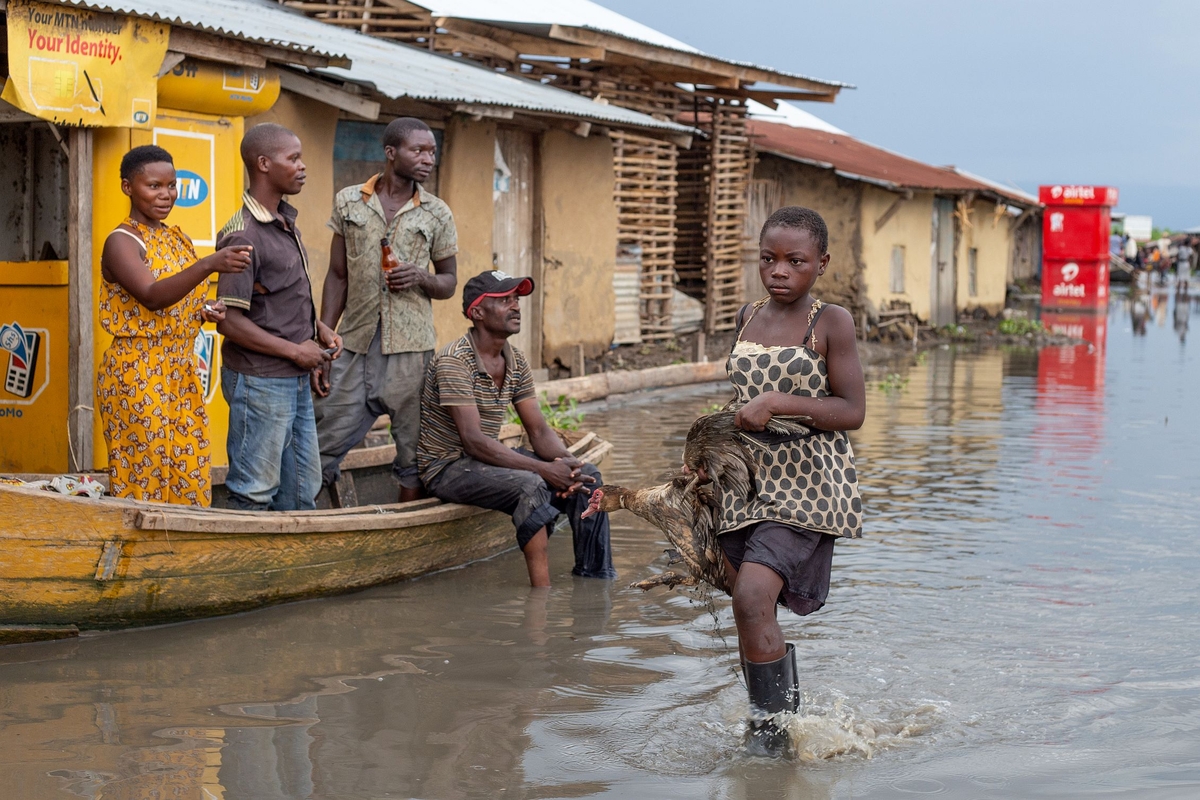
Having a healthy environment is a human right
The pandemic has underlined the pressing need to recognize the rights of the urban poor and to overturn decades of chronic underinvestment in infrastructure that have left slum dwellers exposed to disease outbreaks and climate impacts. The consequences of this inattention have a human price as the global slum population is projected to triple by 2050 if we don’t act now.
We cannot afford to continue ignoring those living in urban slums and working in the informal economy. They deserve the same rights as everyone else in our cities, including that of having a healthy environment, newly recognised as a human right by the United Nations.
If we fail to recognize their contribution to our societies and economies and to fully integrate them into urban and climate planning, reaching the objectives of global agendas from the Paris Agreement, to the SDGs and the Net Zero target, will be in jeopardy. That’s why we should care.
In October 2021, Cities Alliance released the report Building Climate Resilient and Sustainable Cities for All, which explores ways in which informality intersects with climate change and identifies key areas for action. Download it here.
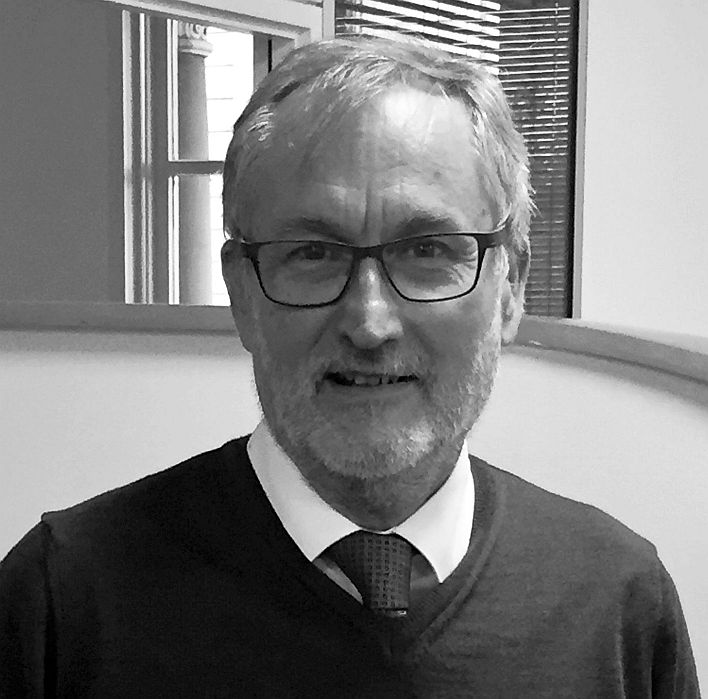
Greg Munro




